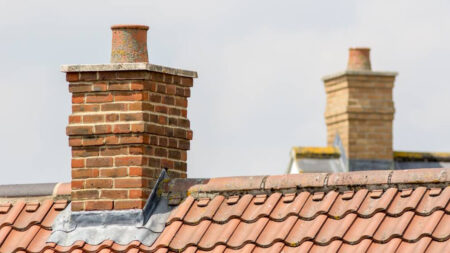When the cold winds start hitting your face and the garden grass begins to turn brownish, it means the winter is approaching. While it’s easier to feel lazy and ignore the garden in cold weather, never make this mistake! It is essential to maintain your garden/yard properly in winter to ensure there’s healthy green grass in the spring and summer.
Since freezing temperatures can adversely impact the garden’s health, you need to follow the given essential tips to winterize your garden and take care of your yard more efficiently.
Rake up fallen leaves and debris

As autumn sets in, you’ll notice a lot of leaves falling from trees in your garden. Often these fallen leaves gather in the hollows and corners outside your home. If you don’t clean them on time, these leaves can completely damage the grassed area underneath.
Therefore, you need to keep the fallen leaves off the grass and clean up the debris. Rake up the leaves or uses a leaf blower. The collected leaf mold can be used in the bare soil; it serves as a winter mulch to attract overwintering insects to improve the soil quality. A layer of mulch around the plants helps protect their roots and retain moisture in the cold.
Aerate and fertilize

Just before the garden begins to frost, go out and start aerating the area. By aeration, you allow your garden to breathe before the first frost. It also helps relieve any soil compaction that tends to build up in warmer months.
Once the garden soil is well aerated, it’s time to add fertilizers. A nicely fertilized garden enables your grass/plants to get the essential nutrients that they need over the winter. This allows the grassroots to absorb the much-needed nutrients in the wintertime.
Keep off the wet soil

It is crucial to keep the soil dry in areas where it often dampens due to snow or winter rain. Since the soiled garden can get waterlogged, it can lead to the earth becoming compacted, making it difficult for roots to penetrate and air and water to circulate.
Keeping the garden dry doesn’t mean you have to keep it completely dry. It means you must avoid waterlogging the soil. However, it is imperative to keep the garden well-watered before the first frost in order to help the greens survive the dry winter months. Avoid over-watering. Consistently wet soil can lead to an increase in fungal and bacterial diseases that can also damage or kill plants.
Prevent moss buildup

Moss thrives in damp, shady garden areas in the winter months. It can be unsightly and create a slippery surface that can be difficult to walk on. If through close inspection you have found moss building up in your garden, you need to immediately do something to prevent its growth.
Begin by raking up the moss and aerating the area. Aeration and improvement in the drainage ensure that the soil is well-draining and getting enough oxygen to allow the grass to become healthier and outcompete the moss buildup.
A moss control treatment before the winter months can help keep moss away during the cold months when sunlight comes at a premium. In case there is bad growth, it may require retreatment in early spring. However, it’s always best to prevent moss growth than to treat it later.
Look out for fungal infections

A fungal infection called fusarium patch disease can impact grass in winter. The grass gets weak, particularly in the chill. It is because all major nutrients are washed off the soil due to rain and snow. This makes the garden vulnerable to environmental conditions and fungal infections.
You must keep checking your lawn for signs of fungal infection in the winter months. If you find any mold patches, contact a professional law care technician for help. It is best to catch early signs to avoid fungal treatment and rebalance nutrients in the grass.
Mow the garden without worrying

Generally, garden grass will start growing tall if the weather is mild during winter. So, you don’t have to be afraid of mowing it in wintertime. Mowing is needed if your garden begins to look untidy. Just like it is essential to rake up the leaves and debris to prevent pests and diseases; it is important to keep the lawn mowed to prevent mold and mildew buildup in winter.
However, make sure the grass is completely dry before you run a mower and that you adjust the blades as high as possible. Along with mowing, prune the overgrowth in shrubs or trees to reduce the amount of wind damage and ensure more sunlight reaches the grass.
Take due care during snow and frost

It’s common to see frosty mornings in winter. There are days when the frost remains for an entire day. If you walk on a frosty lawn, the grass leaves can break and damage the entire plant. This damage is often visible as brown patches only after a few weeks. So, if possible, never walk on frosted grass.
On the other hand, snow is not such an issue for grass. There is no need to clear the snow immediately from your lawn. But keep a constant eye on the growing thaws and snow mold. Make sure that none of these environmental conditions impact the grass in the snow.
Avoid physiological drought

Some de-icing products, including salt, can damage grass by destroying its nutrient content. It is likely to lead to ‘physiological drought,’ which is a condition that reduces nutrient intake and causes bare spots in the garden.
The best way to de-ice your walkways and other garden areas is to choose products with sodium chloride alternatives like calcium chloride. And when you shovel the front sidewalks soon after a snowfall, make sure to remove the snow carefully. Shoveling should not damage the grass below.
Conclusion
Plan ahead of the winter on how you will take care of your garden during the cold. Preparation in advance will ensure that your garden and plants will remain healthy during the winter and will be ready to grow back in the spring.
Follow Homecrux on Google News!




